GRAN TURISMO (2023)
A young man wins a series of Nissan-sponsored video game competitions and becomes a real-life professional race car driver...
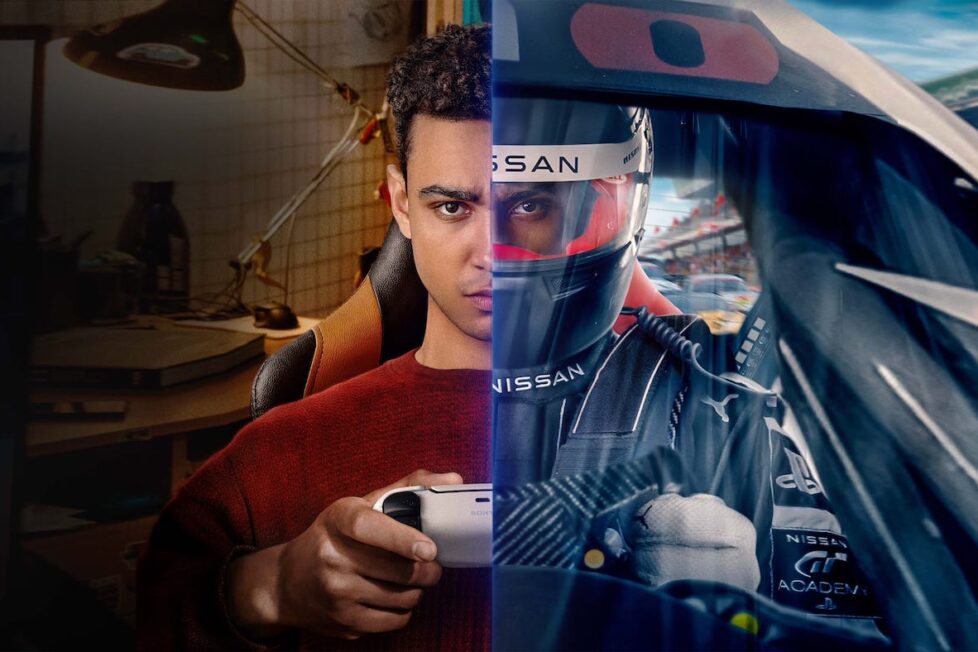
A young man wins a series of Nissan-sponsored video game competitions and becomes a real-life professional race car driver...


Adaptations of video games are notoriously difficult to bring to the screen and have earned a negative reputation over the decades. However, following the moderate success of Uncharted (2022) and the critically acclaimed HBO series The Last of Us (2023), PlayStation Productions’ insatiable hunger for intellectual property has reignited a passion for adapting their most challenging material, Gran Turismo…
After lingering in developmental limbo for years, PlayStation’s most popular franchise has finally received the Hollywood treatment. Created by Kazunori Yamauchi, Gran Turismo bridged the gap between arcade game and driving simulator. Its revolutionary physics and variety of vehicles provided a realistic driving experience to mass audiences. Although PlayStation’s iconic franchise has never been known for its storylines, director Neill Blomkamp (District 9) finds inspiration from a true story surrounding GT Academy—a joint venture between Sony and Nissan designed to turn gamers into racers. While freely borrowing from the underdog formula, the resulting Gran Turismo film is brought to life with exhilarating racing action.
Since an early age, Jann Mardenborough (Archie Madekwe) has dreamed of becoming a professional motorsport driver. The ardent PlayStation devotee spends his teenage years locked up in his bedroom playing Gran Turismo intensively—perfecting his car, racing style, and record time. However, his father (Djimon Hounsou) would rather his son go to university and follow an achievable dream…
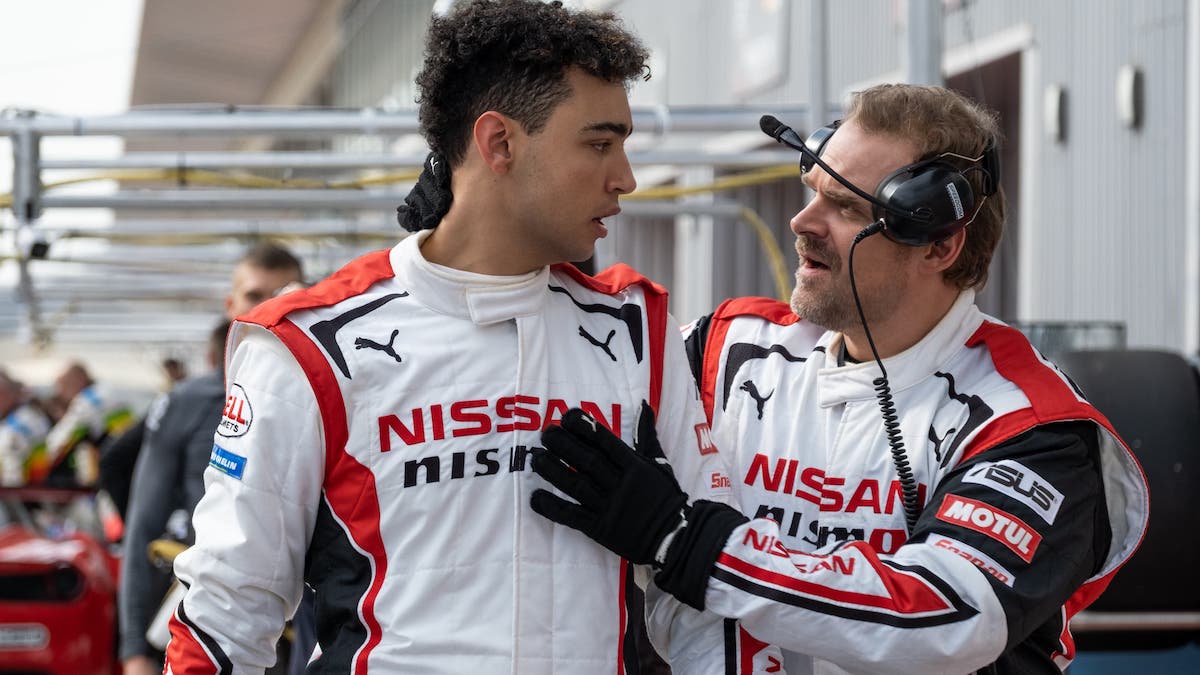
Elsewhere, Nissan marketing executive Danny Moore (Orlando Bloom) is determined to reach a new demographic for his company’s racing business. He believes that gaming enthusiasts could be a valuable commodity and concocts a corporate scheme with Nissan and Polyphony Digital, the developer of the Gran Turismo series. Moore starts a competition called the GT Academy and invites the best Gran Turismo players from around the world to join. The most promising pupil will receive a contract from Nissan and an opportunity to compete on the company’s professional racing team.
Moore enlists engineer Jack Salter (David Harbour) to oversee the training of these competitors, despite his own personal skepticism that sedentary gamers could make good drivers in racing car drivers in real-life, and young Mardenborough enters the GT Academy only to realises the consequences of failing on the track are more dangerous than failing in a game.
Despite most of the cast receding into the background, the strong performances from the two leads help Gran Turismo cross the finish line. Archie Madekwe (Midsommar) delivers an earnest performance and is highly likeable as Mardenborough. The newcomer demonstrates a reserved ambition and awkward energy as he steps into an exciting world more dangerous than he could have imagined. It’s refreshing to have a protagonist whose primary characteristic isn’t aggressive confidence.
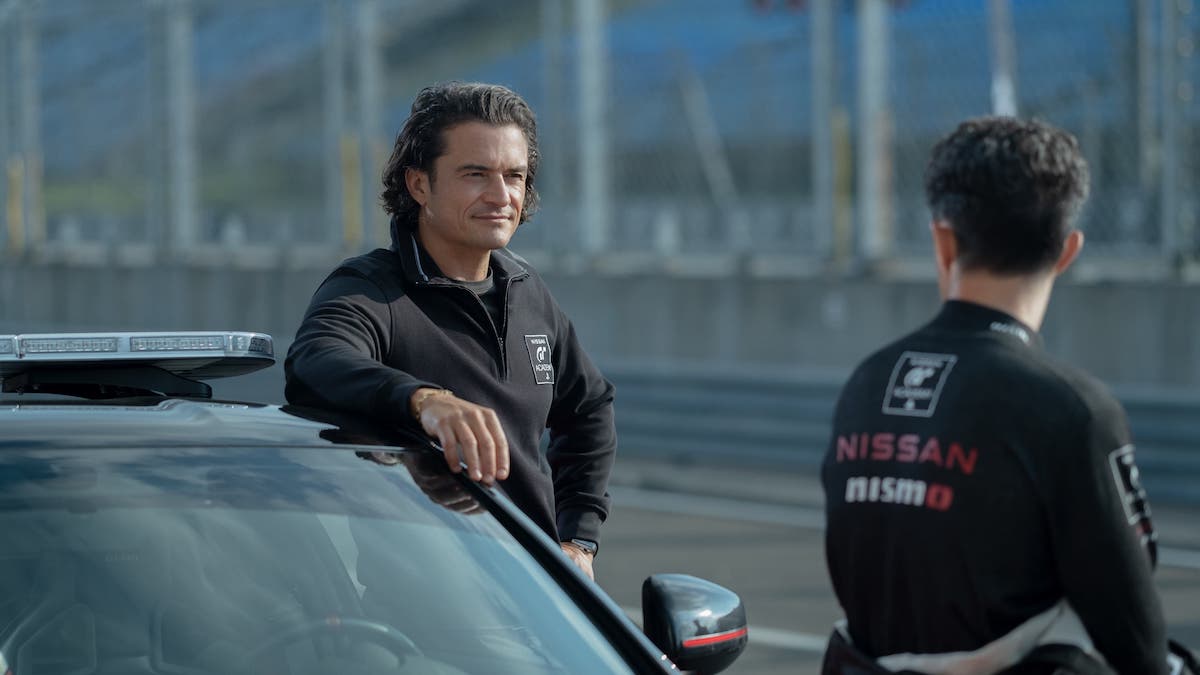
While Madekwe’s portrayal of Mardenborough works incredibly well, David Harbour (Hellboy) provides the standout performance as his stern and somewhat sarcastic mentor. Delivering the perfect blend of charisma and gravitas, Harbour ensures every scene he’s in is memorable. The actor’s comedic timing while screaming insults into the microphone during training sessions and from the sidelines are the source of numerous hilarious moments. However, during the emotionally weighted moments, Harbour is allowed to demonstrate more of his range and imbues Salter with a surprising amount of vulnerability. Some of his finest moments are when Salter and Mardenborough simply discuss their lives and ambitions. He’s a lovable curmudgeon battling his own failures while preparing his student to face off against privileged teenagers driving golden Lamborghinis.
Neill Blomkamp’s approach to adapting PlayStation’s most successful franchises is refreshing. It’s less of a straight adaptation than a dramatisation of Mardenborough’s fascinating true story that merely involved the famous video game. This culminates into an interesting sports biopic that offers Blomkamp a change of pace from his previous science-fiction outings. He conceived Gran Turismo as a theatrical experience first and foremost and successfully balances the visceral thrill of motorsports while remaining faithful to the gameplay.
The director’s commitment to authenticity can be felt throughout as he thrillingly captures the racing sequences in exhausting detail. Blomkamp places audiences in the driver’s seat and designed these dynamic moments to pay homage to the inspirational games.
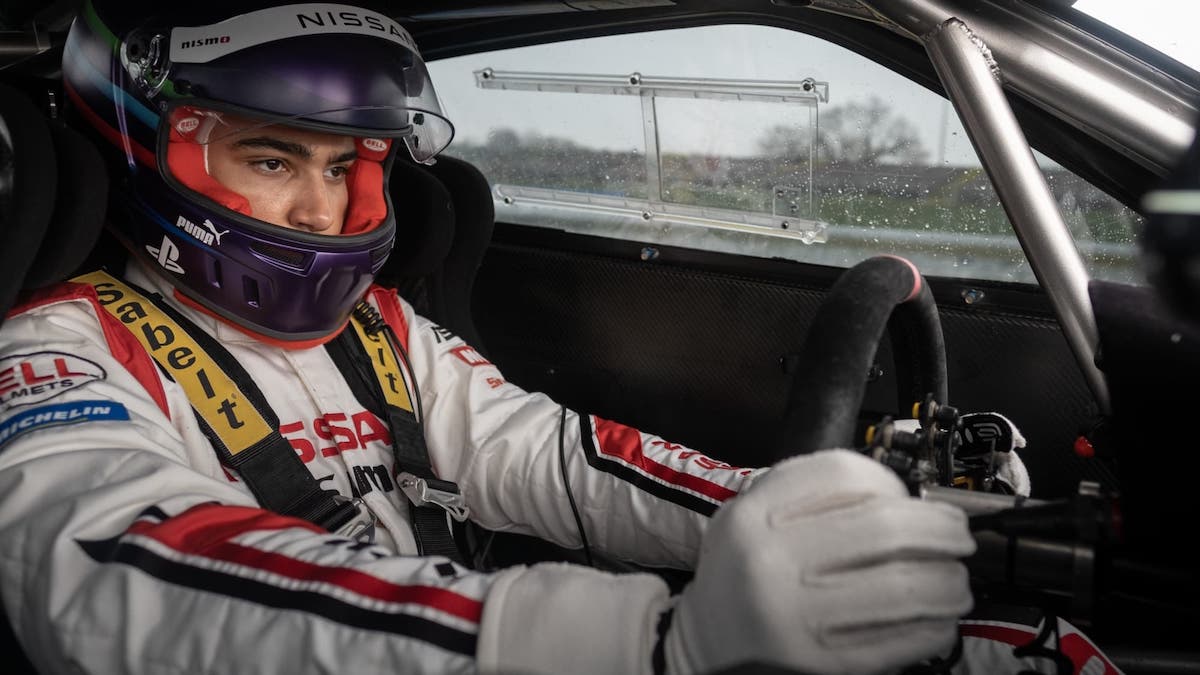
What keeps Gran Turismo engaging on a visceral level is partly due to Jacques Jouffret’s (The Purge) immersive cinematography. Echoing Michael Bay’s Ambulance (2022), Jouffret’s stylish drone photography captures some of the most breathtaking racing sequences ever committed to film. The drones plunge into the circuits and follow the vehicles as they race at death-defying speeds. Matt Cavanaugh’s (A Quiet Place Part II) excellent sound design is also worthy of praise and almost overshadows the action. The roar of each engine, the screech of the tiers, and the scream of the vehicles are intoxicating.
Comparisons to recent successful motorsport biopics like Rush (2013) and Le Mans ’66 (2020) are inescapable, but Gran Turismo contains enough personality it can take a spot at the podium. It often feels that Blomkamp has created a new cinematic language that represents the excitement generated by professional racing.
Juxtaposing the physical and virtual dichotomy of Mardenborough’s story, the director frequently applies the video game’s aesthetic to the practicality of racing. Several sequences are enlivened with directorial flourishes that blur the line between simulation and reality. When Mardenborough is gaming in his bedroom, a virtual vehicle surrounds him and transforms his home into a racetrack. Whereas sometimes his car virtually disassembles into a thousand individual parts on the racetrack to emphasise the vehicle’s technological intricacy. Several tumultuous sequences are reimagined as racing simulations, replete with digital leader markers and fast track lanes that echo the inventive visuals of Shawn Levy’s Free Guy (2021) and Jon Baird’s Tertris (2023). Those familiar with the franchise will revel in the familiar images, whereas even casual gamers will find themselves engrossed.
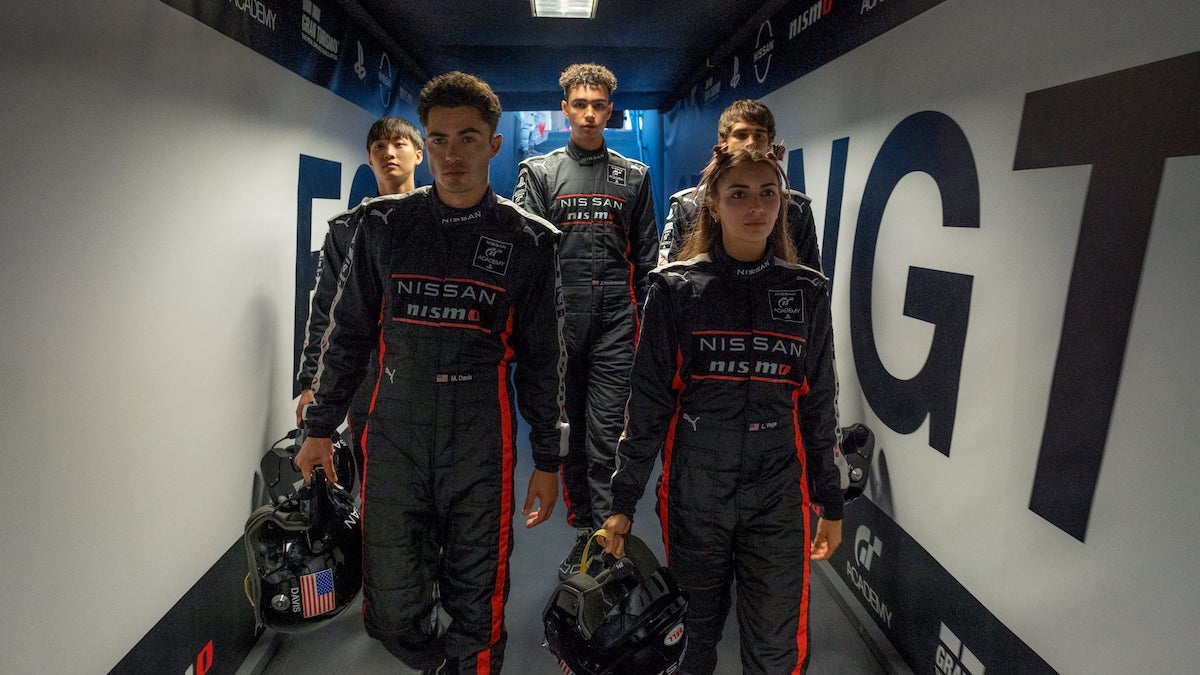
Despite Blomkamp’s dynamism, Gran Turismo occasionally feels an innovative Sony marketing endeavour that unashamedly drives home the splendour of the titular racing simulation. Similar to Ben Affleck’s Air (2023) and Matt Johnson’s BlackBerry (2023), it’s an ode to benevolent corporations making dreams come true and corporate synergy.
Mardenborough’s story is undoubtedly compelling but Jason Hall’s (American Sniper) and Zach Baylin’s (King Richard) screenplay struggles to find a convincing dramatic tone. Emotional investment is attempted during the first act when Mardenborough’s relationship with his disapproving parents is briefly explored. His father wants him to go to university and his mother just wants what’s best for her son. However, the family melodrama and most of the character development fail to register as particularly compelling.
Furthermore, the under-utilised supporting characters are stripped back to their bare basic requirements. Mardenborough’s fictional romance with Audrey (Maeve Courtier-Lilley) is sorely underdeveloped, whereas his rivalry against Nicholas Capa (Joshua Stradowski) lacks nuance and complexity. Perhaps the most interesting and engaging aspect of the story is the surrogate relationship between Mardenborough and Salter. The disillusioned coach primarily exists to doubt this newcomer’s potential before Mardenborough proves he has the mental and physical ability to overcome intimidating racing veterans to find success. Without their relationship at its core, Gran Turismo would essentially be a glorified marketing campaign for the video game franchise.
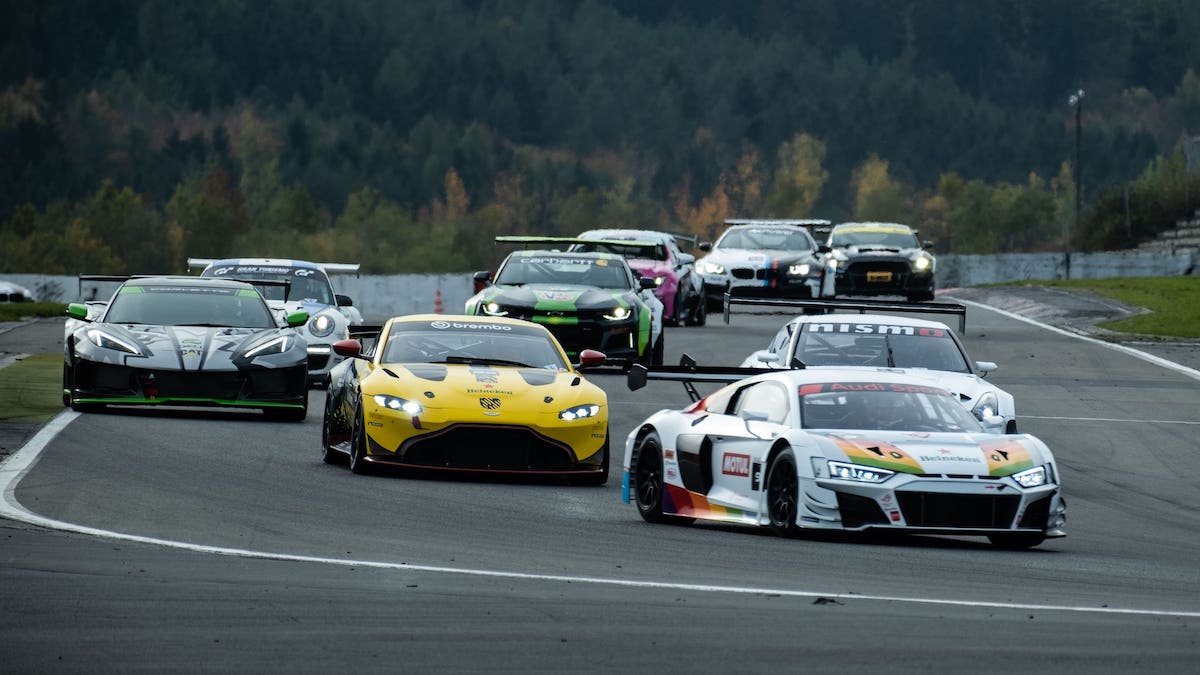
Although the leap from gamer to professional racing driver may be unrealistic, Gran Turismo is ostensibly based on a true story. Mardenborough really did enter the 2011 GT Academy competition and beat 90,000 gamers to secure his position in the camp. This launched him into professional racing where he competed in prestigious competitions including British GT Championship and Le Mans. Blomkamp hits the conventional beats cleanly enough and adequately romanticises the details of Mardenborough’s career to function as a familiar underdog tale.
However, the underlining issue with Gran Turismo is that it lacks the imagination to distinguish itself from countless sports biopics. Mardenborough’s career shifted gears dramatically following an incident at the Nürburgring. After losing control of his vehicle, he cartwheeled through a fence and killed a spectator. This is based on an actual event and remains a defining moment in Mardenborough’s career. Blomkamp attempts to apply the brakes and acknowledge the terrible reality, but the horrific tragedy is repurposed in a way that feels cynical and calculated. The opening act emphasises that Nissan invested millions of dollars and don’t want blood on their hands from this madcap scheme. Instead of deviating from predictability and attempting something somewhat unique by underlining the importance of safety and the risks associated with motorsports, the spectator’s death ultimately becomes a motivational moment in Mardenborough’s journey to self-actualisation.
Gran Turismo should resonate with fans of the franchise and motorsports enthusiasts alike. Blomkamp crafts exciting sequences and there’s a strong attempt at making this incredibly calculated rendition of Mardenborough’s journey engaging. However, moments of sincerity are frequently hampered by what appears to be a gigantic advertisement for Sony and Nissan. This Gran Turismo adaptation had the potential of being something unique, but it lacks enough originality to keep the engine running.
USA • JAPAN | 153 MINUTES | 1:85:1 | COLOUR | ENGLISH

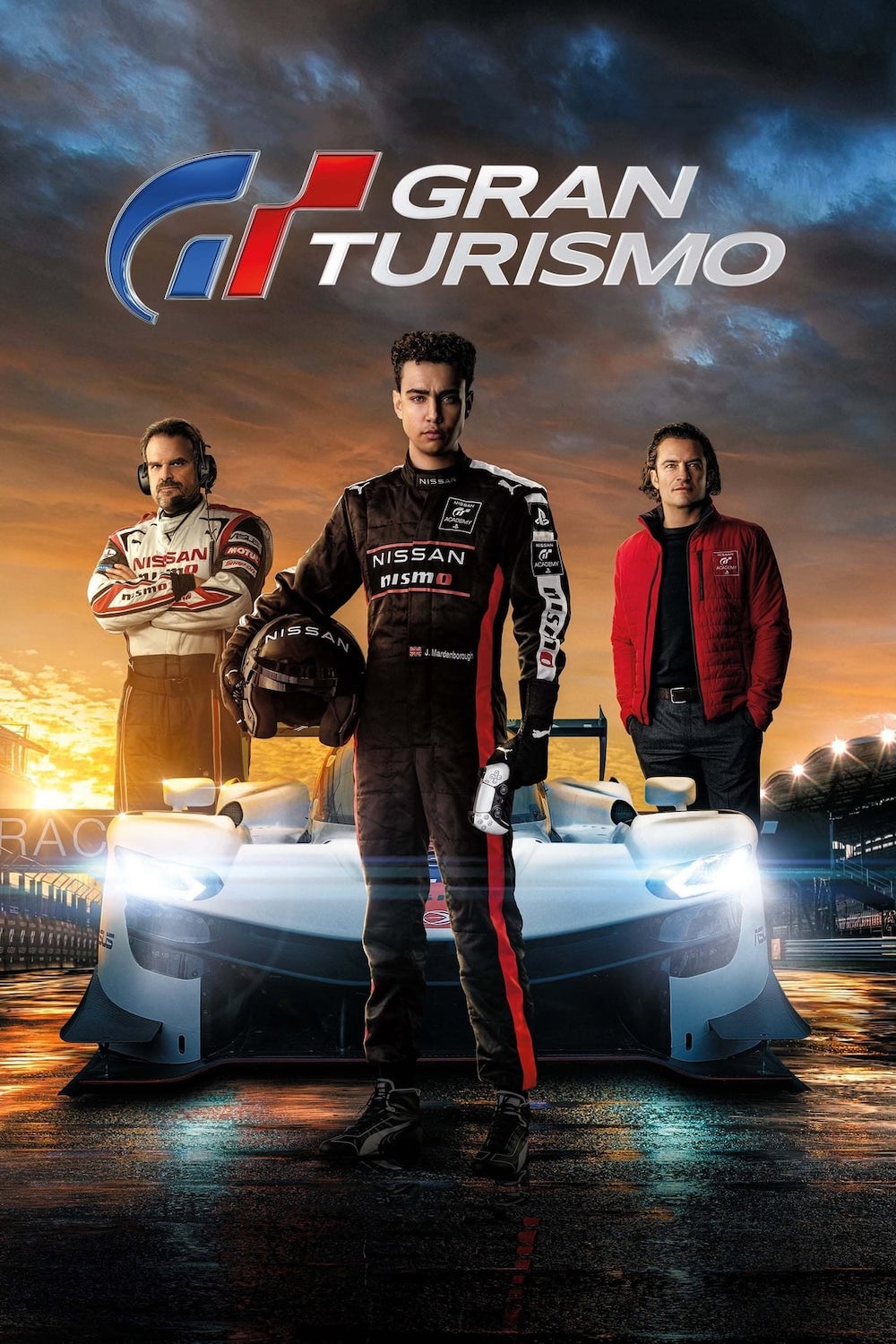
director: Neill Blomkamp.
writers: Jason Hall, Zach Baylin & Alex Tse (based on the video game by Polyphony Digital).
starring: David Harbour, Orlando Bloom, Archie Madekwe, Djimon Hounsou, Darren Barnet & Geri Halliwell Horner.
